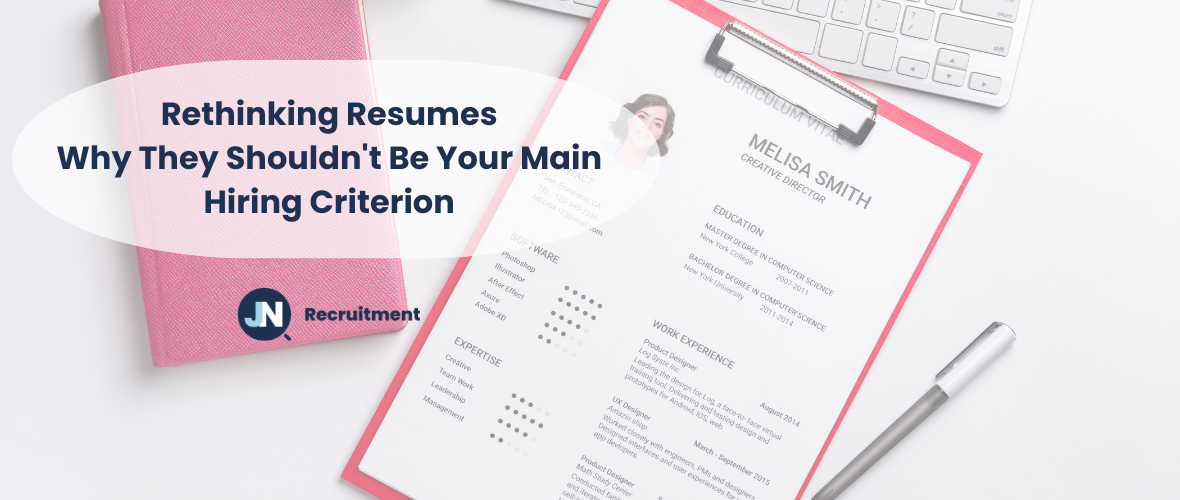In the rapidly evolving job market of 2024, hiring managers are increasingly debating the value of traditional hiring metrics, like resumes. As we navigate this complex terrain, it’s important to examine both sides of the spectrum.
The Case Against Solely Relying on Resumes
Missing the Bigger Picture
Resumes are typically concise documents focusing on educational background, work experience, and skills. However, they often fail to capture the full essence of a candidate’s potential, such as their emotional intelligence, adaptability, and other soft skills that are crucial in today’s dynamic work environments. These skills are also known as 21st century skills – they might be hard to examine by just looking at a resume. Apart from this, industries where innovation and adaptability are key, a resume might not reveal who has the potential to think outside the box or drive change.
Bias and Misrepresentation
There’s an inherent bias in resumes, whether it’s conscious or unconscious. Candidates may embellish achievements or tailor experiences in a way that doesn’t entirely reflect their actual capabilities or job performance. Moreover, standard resume formats can unintentionally favor candidates from certain educational or socio-economic backgrounds, thereby perpetuating inequality in the hiring process. This is particularly relevant in high-volume hiring scenarios, where time constraints significantly influence the process.
Evolving Skill Sets
In 2024, the half-life of skills is shorter than ever. Many of the technical skills that were in demand a few years ago might now be obsolete, replaced by new technologies and methodologies. A resume might show a candidate’s past achievements but can’t effectively demonstrate their willingness or ability to learn new skills quickly.
Why are resumes still in use?
- Efficiency and Accessibility
Despite their limitations, resumes are a highly efficient tool for the initial stages of the hiring process. They allow recruiters to quickly assess a large pool of candidates, filtering out those who lack essential qualifications or experience. This can be particularly critical in industries with high volumes of applicants.
- Historical Performance and Accountability
Resumes provide a historical record of a candidate’s career trajectory, giving employers insight into their professional development and achievements. This can be especially important for senior positions where past performance and proven experience are critical indicators of future success.
- Standardisation and Comparability
Resumes help standardize the presentation of information, making it easier to compare candidates on a like-for-like basis. This can be particularly useful in fields that require specific technical skills or academic qualifications, providing a baseline from which to start deeper investigations into a candidate’s suitability. Relying on other platforms such as LinkedIn might not get the desired results as some of the candidates do not update their profiles or do not possess an account at all.
Finding a Balanced Approach
Given these perspectives, it’s clear that while resumes should not be the sole factor in making a hiring decision, they remain a valuable tool in the recruitment process. To optimise hiring decisions in 2024, companies should complement resume reviews with tools like structured interviews, skill assessments, and real-world problem-solving scenarios. Additionally, incorporating AI and machine learning can help reduce biases by focusing on skills and competencies.
We look at the resume as just one piece of the puzzle. A holistic approach that values diverse assessment methodologies will not only enhance the fairness of the hiring process but also ensure that companies are truly hiring the best talent, not just those who look good on paper. As we move forward, the challenge will be to balance efficiency with thoroughness, ensuring that hiring decisions are fair and reflective of a candidate’s potential to thrive in a role.







